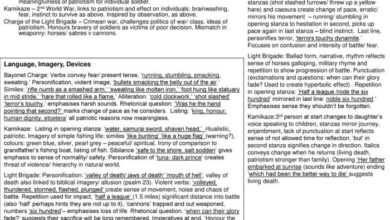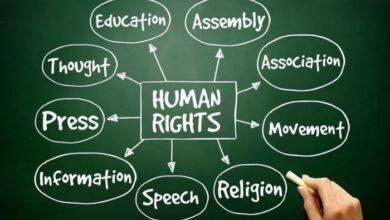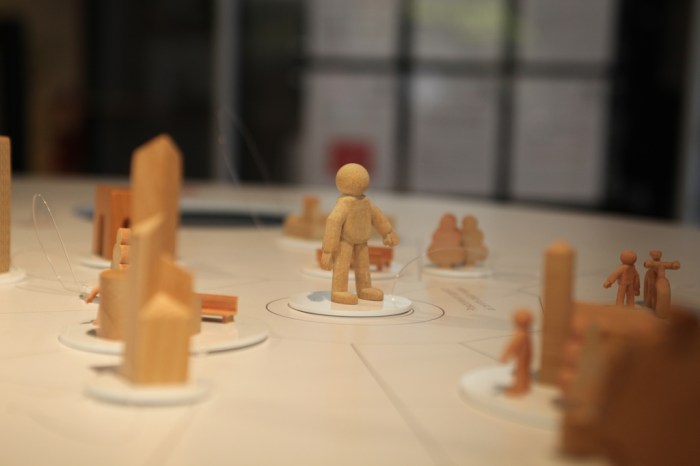
The Internet and Human Rights: A Complex Landscape
The internet and human rights are inextricably linked, shaping a world where information flows freely and voices can be heard. But this digital landscape is not without its shadows, raising critical questions about privacy, censorship, and the very fabric of our online freedoms.
This exploration delves into the profound impact of the internet on human rights, examining both the positive and negative aspects. We’ll uncover how technology empowers individuals while simultaneously posing new threats to fundamental freedoms. From the rise of social justice movements to the dangers of online surveillance, this journey will illuminate the complex interplay between the digital age and the human condition.
The Internet’s Impact on Human Rights
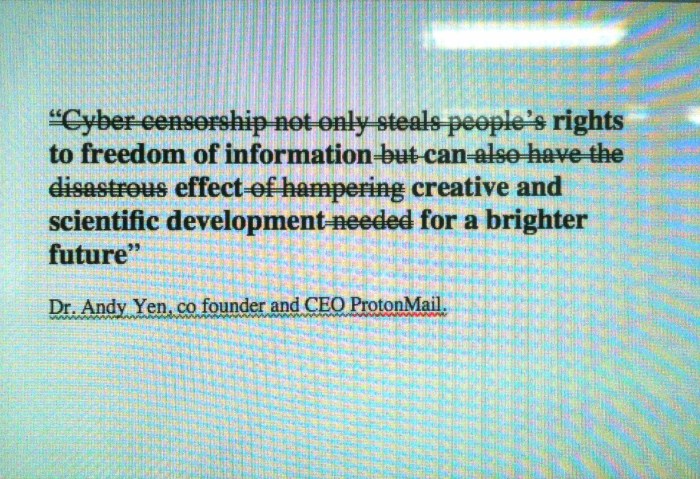
The internet has revolutionized communication, information sharing, and social interaction, profoundly impacting human rights. Its influence is multifaceted, offering both opportunities and challenges in the pursuit of a just and equitable world.
The Internet’s Positive Impact on Human Rights
The internet has empowered individuals and communities by providing access to information, fostering dialogue, and promoting civic engagement.
- Freedom of Expression:The internet has created unprecedented platforms for individuals to express their views, opinions, and beliefs without fear of censorship or reprisal. Social media platforms, blogs, and online forums have become vital spaces for dissent, activism, and the dissemination of diverse perspectives.
The Arab Spring uprisings, for instance, were fueled by the use of social media to organize protests and share information, demonstrating the internet’s potential to empower citizens and challenge authoritarian regimes.
- Access to Information:The internet has democratized access to information, making knowledge readily available to a wider audience. Online libraries, databases, and news sources provide individuals with the tools to educate themselves, engage in critical thinking, and participate in informed decision-making. This access to information is particularly crucial in regions where traditional media is controlled or censored, empowering individuals to challenge dominant narratives and access alternative perspectives.
The internet has become a powerful tool for promoting human rights, but it also presents new challenges for protecting them. One crucial aspect is holding individuals accountable for the most serious crimes, which is where the international criminal court introduction comes in.
This court plays a vital role in ensuring justice for victims of atrocities and can be instrumental in shaping a safer online environment for all.
- Civic Engagement:The internet has facilitated online activism, enabling individuals to connect with like-minded people, mobilize for social change, and hold authorities accountable. Online petitions, crowdfunding platforms, and social media campaigns have become powerful tools for raising awareness, organizing protests, and advocating for policy changes.
The #MeToo movement, which used social media to expose sexual harassment and abuse, is a prime example of how the internet can amplify marginalized voices and drive social justice movements.
The Internet’s Negative Impact on Human Rights
While the internet has immense potential to advance human rights, its misuse can also lead to serious violations.
The internet has revolutionized communication and access to information, but it also presents new challenges for human rights. One of the most concerning issues is the potential for governments to use online platforms to manipulate public opinion, as seen in the recent debate over the Office of Strategic Influence.
It’s crucial that we ensure the internet remains a space for free expression and open dialogue, where individuals can access accurate information and participate in democratic processes without fear of censorship or manipulation.
- Online Censorship:Governments and corporations can use technology to restrict access to information, silence dissenting voices, and control the flow of ideas. Examples include the Great Firewall of China, which blocks access to websites and social media platforms deemed sensitive by the Chinese government, and the use of internet shutdowns to suppress protests and limit access to information during times of unrest.
The internet has become a vital tool for promoting human rights, allowing individuals to connect, organize, and advocate for change. However, the internet’s reach is often intertwined with geopolitical interests, as seen in the rise of military expansion serving economic objectives.
This expansion, fueled by economic ambitions, can create tensions and limit access to information, ultimately impacting the ability of individuals to exercise their human rights online.
These practices undermine freedom of expression and access to information, hindering the exercise of fundamental human rights.
- Surveillance:The internet has facilitated mass surveillance, allowing governments and corporations to collect vast amounts of data about individuals’ online activities, including their browsing history, social media interactions, and communication patterns. This data can be used for political repression, targeted advertising, and other purposes that infringe on privacy and freedom of association.
Examples include the use of facial recognition technology by governments to track citizens’ movements and the collection of user data by social media companies for targeted advertising and profiling.
- Spread of Misinformation:The internet’s decentralized nature and ease of information sharing can contribute to the spread of misinformation, fake news, and propaganda. This can have serious consequences for democratic processes, public health, and social cohesion. Examples include the spread of false information about vaccines, the manipulation of social media to influence elections, and the use of online platforms to incite violence and hatred.
Freedom of Expression and the Internet: The Internet And Human Rights
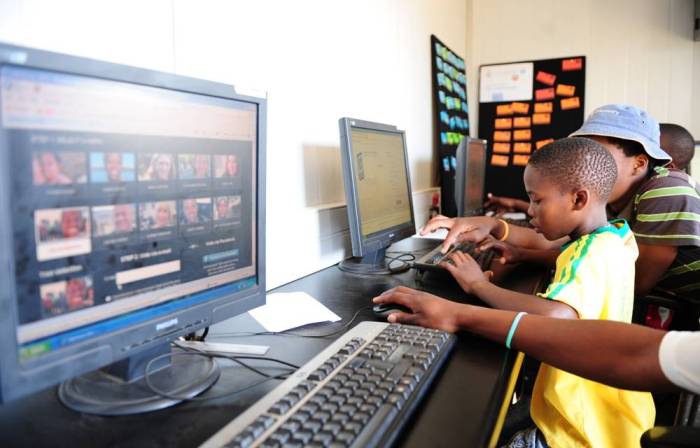
The internet has emerged as a powerful platform for the free exchange of ideas and information, playing a crucial role in amplifying diverse voices and fostering open dialogue. This unprecedented access to information and communication tools has revolutionized the way we express ourselves, engage in public discourse, and advocate for social change.
The Internet’s Role in Facilitating Free Speech
The internet has created a global public square where individuals from all walks of life can share their thoughts, opinions, and experiences without fear of censorship or reprisal. This accessibility has empowered marginalized groups, dissidents, and activists to speak out against injustice and challenge the status quo.
The internet’s decentralized nature, with its numerous platforms and networks, makes it difficult for governments or other entities to control the flow of information and restrict free expression.
Privacy and Surveillance in the Digital Age
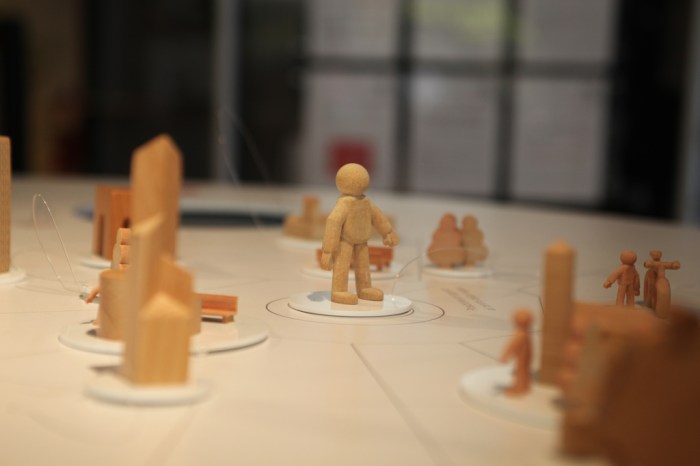
The internet has revolutionized communication and access to information, but it has also ushered in an era of unprecedented data collection and surveillance. Our online activities leave a digital trail, and this information is valuable to both governments and corporations.
This section explores the various ways in which the internet is used to collect and track personal data, the implications of mass surveillance on privacy and human rights, and technologies and strategies for protecting online privacy.
Government Monitoring and Surveillance
Governments worldwide are increasingly using technology to monitor and surveil their citizens. This includes accessing internet traffic, tracking location data, and collecting information from social media platforms. While governments argue that surveillance is necessary for national security and crime prevention, it raises concerns about privacy violations and the potential for abuse.
- Data Interception:Governments can intercept internet traffic through various means, including wiretapping, network monitoring, and data retention laws. This allows them to access emails, messages, browsing history, and other sensitive information.
- Location Tracking:Through GPS data from smartphones, government agencies can track individuals’ movements and locations, raising concerns about freedom of movement and the potential for profiling based on location data.
- Social Media Monitoring:Governments are increasingly using social media platforms to monitor public sentiment, identify potential threats, and track individuals’ activities. This raises concerns about freedom of expression and the potential for censorship.
Corporate Data Collection and Targeted Advertising
Corporations collect vast amounts of personal data through websites, apps, and online services. This data is used for targeted advertising, product development, and market research. While some data collection is necessary for providing services, the extent and scope of data collection raise concerns about privacy and the potential for misuse.
- Cookies and Tracking Pixels:Websites use cookies and tracking pixels to collect information about users’ browsing habits, preferences, and online activities. This data is used to target advertising and personalize content.
- Data Brokerage:Companies specialize in collecting and selling personal data to other companies. This data can be used for targeted advertising, credit scoring, and other purposes.
- Social Media Data:Social media platforms collect vast amounts of data about users, including their posts, likes, comments, and connections. This data is used for targeted advertising, market research, and other purposes.
Implications of Mass Surveillance, The internet and human rights
Mass surveillance has significant implications for privacy and human rights. It can lead to:
- Chilling Effect on Free Speech:Individuals may be hesitant to express themselves freely online if they fear that their communications are being monitored.
- Discrimination and Profiling:Data collected through surveillance can be used to profile individuals based on their race, religion, political views, or other characteristics.
- Erosion of Trust:Mass surveillance can erode trust in government and institutions, as people may feel that their privacy is being violated.
Technologies and Strategies for Protecting Online Privacy
There are a number of technologies and strategies that individuals can use to protect their online privacy:
- Virtual Private Networks (VPNs):VPNs encrypt internet traffic and route it through a secure server, making it difficult for third parties to monitor online activities.
- Privacy-Focused Browsers:Some browsers are designed with privacy in mind, such as Brave and Tor Browser. These browsers block tracking cookies, encrypt internet traffic, and offer other privacy-enhancing features.
- Privacy-Focused Search Engines:Search engines such as DuckDuckGo and Startpage do not track user searches or collect personal data.
- Strong Passwords and Two-Factor Authentication:Using strong passwords and enabling two-factor authentication helps to protect accounts from unauthorized access.
- Privacy-Focused Social Media Platforms:Some social media platforms are designed with privacy in mind, such as Diaspora and Mastodon.

